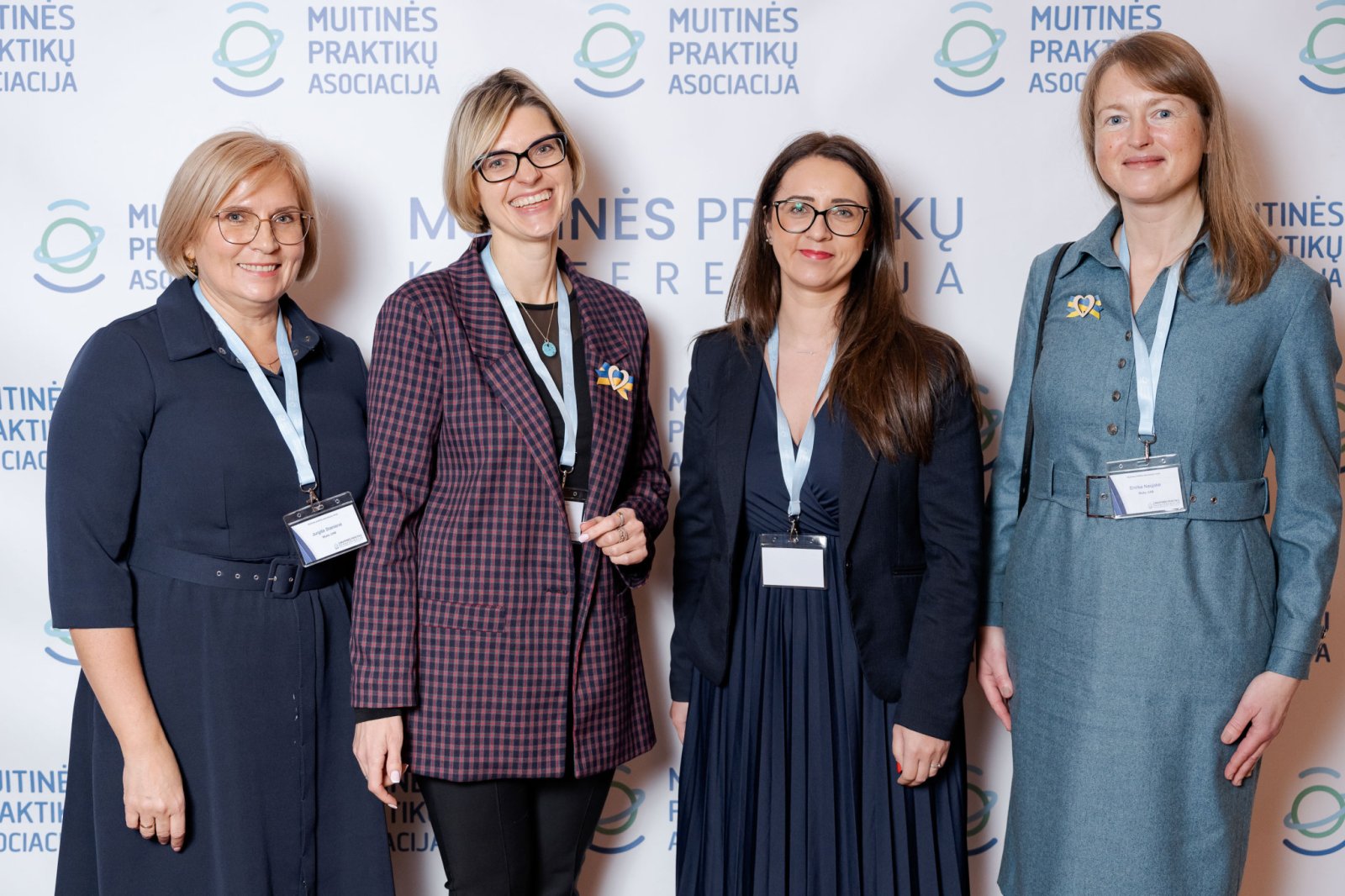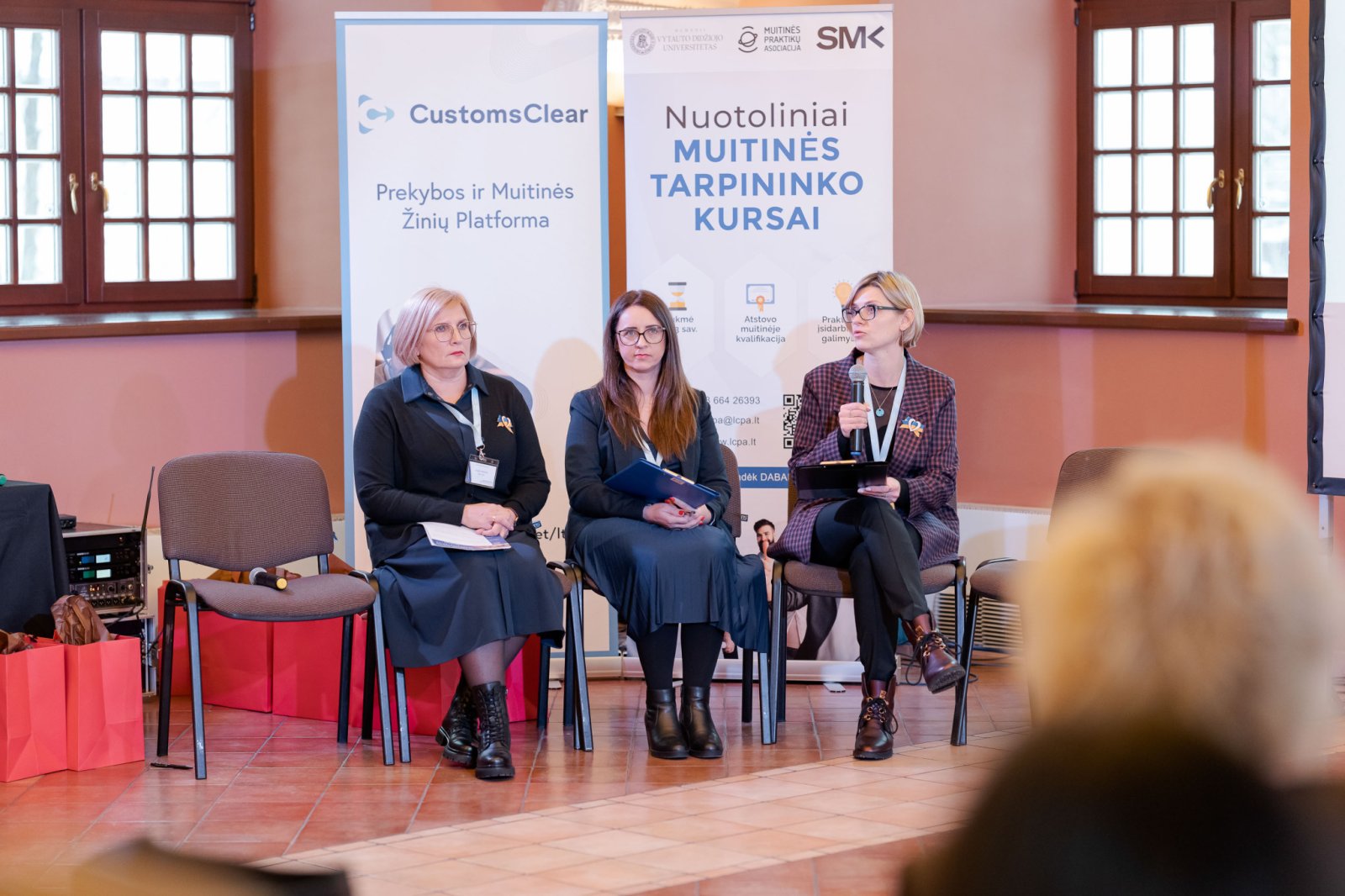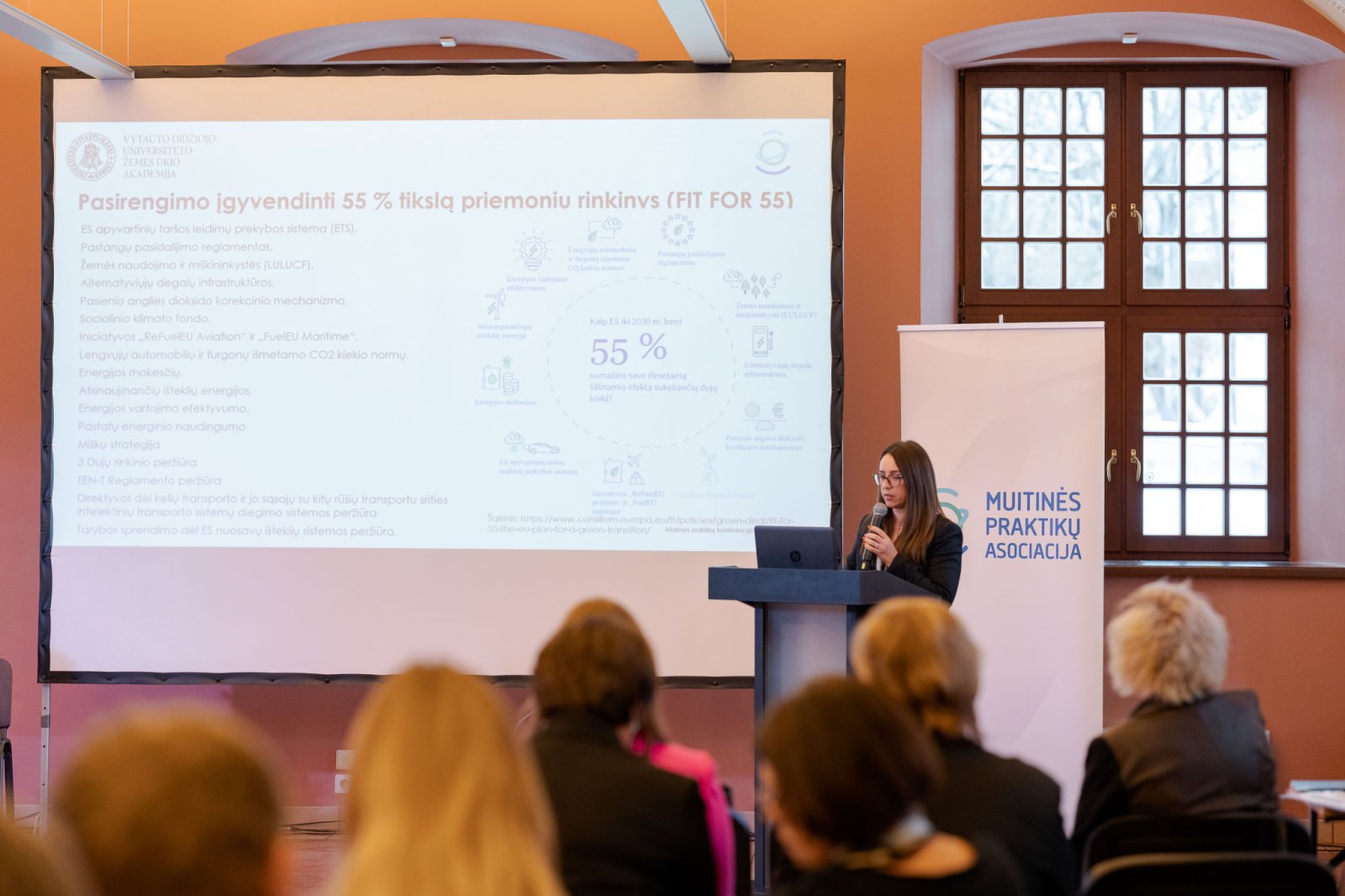The European Green Deal is Affecting More and More Organizations. Changes in Customs

The action plan of European Green Deal is gaining momentum, more and more organizations have to rethink and review their operational processes, adapt to current and future changes. Associated professors of the Faculty of Bioeconomy Development of Vytautas Magnus university Agriculture Academy (VMU AA) were invited to discuss these changes at the 7th Conference of the Customs Practice Association.
Assoc. prof. dr. Erika Besusparienė on December 8 attended at the 7th conference of the Customs Practice Association, she made a presentation “The European Green Deal: Challenges and Opportunities”, which has been prepared together with colleague assoc. prof. dr. Milita Vienažindienė. The researchers presented several key actions of the European Green Deal, which will directly affect companies importing goods, logistics companies, customs brokers, customs and the consumer of imported goods.
Assoc. prof. dr. M. Viežindiene noted that logistics companies will face new challenges in the product supply chain due to the reduction of CO2 emissions from new passenger cars and new vans, which by 2030 must be reduced to 50%, and in 2035 – 100%. “This progress can only be achieved by ensuring alternative fuels and evaluating the amount of CO2 emitted by vehicles, so the European Commission by 2025 must develop a common European Union (EU) methodology for the evaluation of CO2 emissions throughout the life cycle of passenger cars and vans”, – commented assoc. prof. dr. M. Vienažindienė. Assoc. prof. dr. E. Besusparienė noticed that supply costs are often “hidden costs” in the value of goods, so it is difficult to predict how much the value of goods would increase as a result of transporting goods using alternative fuels.
Assoc. prof. dr. E. Besusparienė singled out the new CO2 tax, which is named as a carbon border adjustment mechanism in the European Green Course. “The first steps towards the introduction of the tax are already starting from January 1, 2023. The new CO2 tax will initially affect imports of cement, steel and iron, aluminium, fertilizers and electricity. The CO2 tax will be applied from 2026 and with the complete abandonment of pollution permits from 2030 only this tax would remain. According to the calculations of the European Commission, the EU budget would be replenished by about 1 billion euros on average every year (2026-2030) due to this tax. Thus, the costs to the business would increase in the same volume. Although the carbon border tax mechanism is designed to prevent that polluting goods would not enter the EU market; and thereby indirectly contribute to third countries’ transformation to more sustainable production. Unfortunately, the market often observes that “green” goods cost more”, – commented assoc. prof. dr. E. Besusprienė.
While participating in the discussion “Green economy, current issues of tariff classification”, assoc. prof. dr. E. Besusparienė noted that the successful development of a circular economy requires the involvement and cooperation of business, government and higher education and study institutions. Assoc. prof. dr. E. Besusparienė, together with the moderator of the discussion Milda Stravinske, discussed that exists false stereotype that the green economy is far from the customs area. To this day, it is being discussed about importing waste and its value, does it differ, if the waste will be utilized or processed. According to accounting theories, when pricing is determined by the cost-plus method, the value of the waste may be the same regardless of further use. However, when discussing the transaction method, which is based on negotiations, different values can be agreed, where the price (value) of the waste to be utilized will be lower (the seller tends to get rid of the waste faster) and the waste that can be used according to the principles of the circular economy will be more valuable and it is assumed that the price (value) will be higher. This is directly related to the customs assessment of goods (in this case, waste) and the calculation of taxes paid to customs. UAB “Muita” head of the customs compliance department Jurgita Stanienė, who participated in the discussion, noted that new challenge is how to classify such imported waste.
The 7th Customs Practice Association conference further revealed the intertwining of various fields and how important it is for representatives of different businesses to reorient themselves in new changes in order to achieve a more sustainable future.
Moments of the 7th Customs Practice Association conference:














